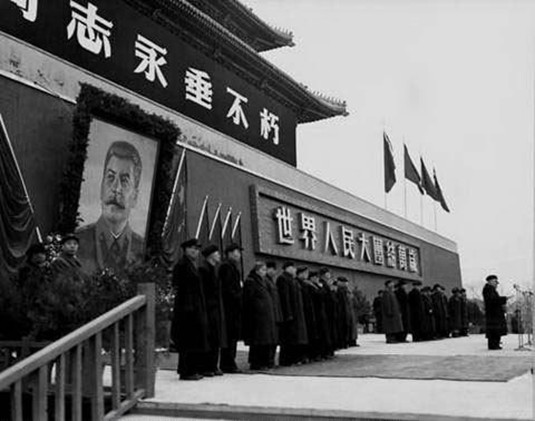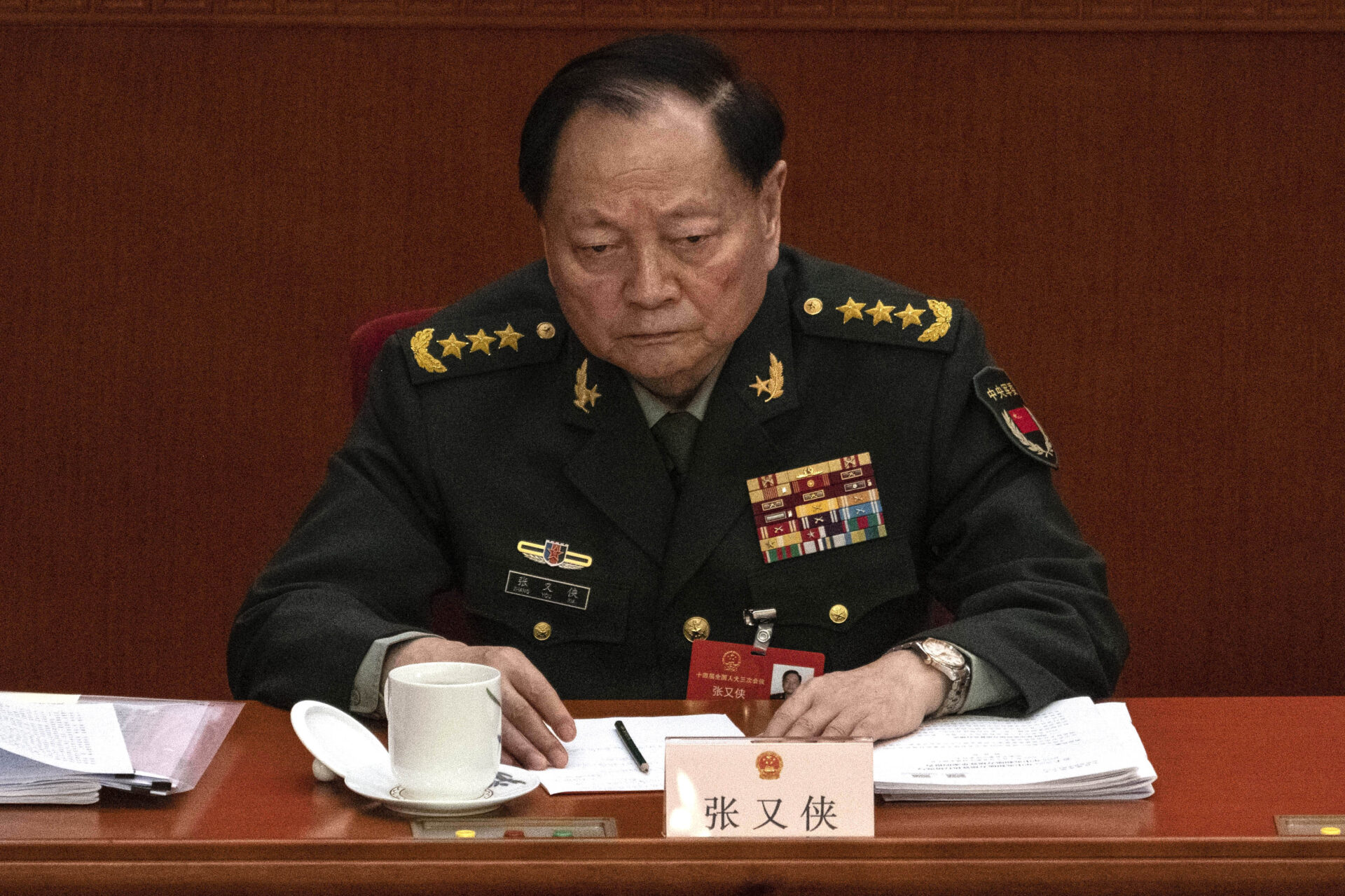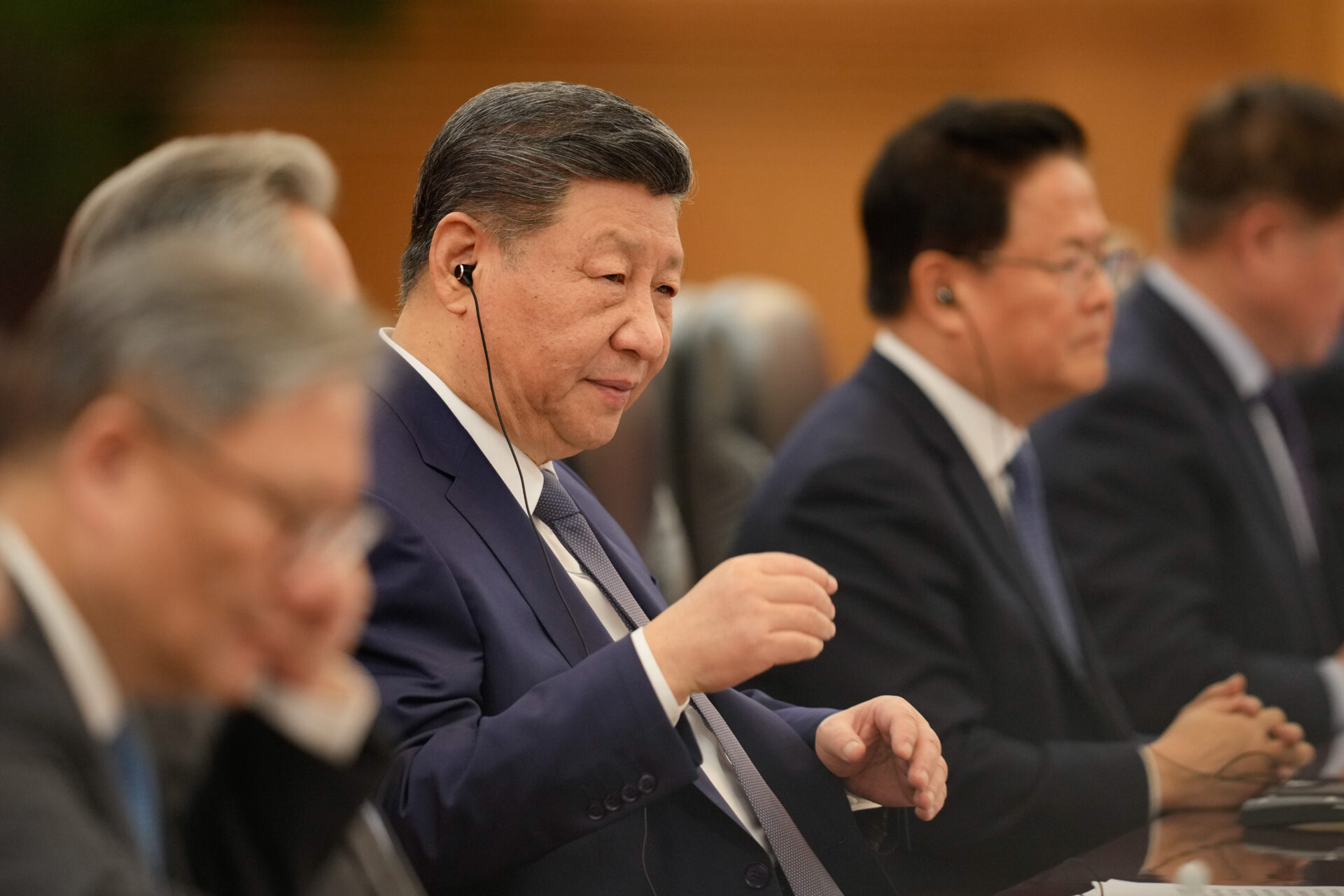HU’S CAMPAIGN FOR IDEOLOGICAL PURITY AGAINST THE WEST
HU’S CAMPAIGN FOR IDEOLOGICAL PURITY AGAINST THE WEST
Call it the Great Leap Leftward. President and Commander-in-Chief Hu Jintao is presiding over a leftward turn in politics that has come as a surprise to Hu admirers who were once impressed with the Fourth-Generation leader’s reformist inclinations. In Chinese terminology, “left” has the connotation of being conservative, doctrinaire, and in tune with Marxism-Leninism and Mao Zedong Thought. This lurch leftward, which began in earnest with Hu’s lavish celebration of Mao’s 110th birthday a year ago, has been exacerbated since the new supremo took over the post of Central Military Commission Chairman from ex-president Jiang Zemin last September.
By coincidence, Mao’s 111th birthday, which fell on December 26, would also have been a day of significance for the Chinese Communist Party (CCP) leadership. However, it was eclipsed by the Indonesia-originated earthquake and tsunami that killed more than 160,000 people. Members and advisers of the CCP Leading Group on Foreign Affairs (LGFA), which is headed by Hu, were closely watching presidential polls in Ukraine – a re-run of the contest between pro-West opposition politician Viktor Yushchenko and prime minister Viktor Yanukovych, who has solid Russian backing. While Beijing does not always see eye to eye with the authoritarian regime of Vladimir Putin, the Hu leadership agreed with Moscow’s assessment that Yushchenko’s victory the second time around was due to heavy support from the Western alliance led by Washington.
In internal sessions devoted to the Ukraine phenomenon, Hu’s aides in the LGFA pointed out that, in the words of one America specialist, Yushchenko’s election triumph was due to the fact that “the West, led by the U.S., has been successful in infiltrating former Communist countries, thus resulting in their tilt toward America.” Hu advisers have raised the specter of a domino effect, meaning that after Ukraine, similar pro-West, pro-U.S. administrations may emerge in other former Soviet-bloc countries, including member countries of the Shanghai Cooperation Organization such as Uzbekistan, Tajikistan, and Kyrgyzstan, which have close ties with Beijing. Moreover, the Hu leadership has inherited late patriarch Deng Xiaoping’s suspicions that Washington is dead-set on effectuating China’s transformation into a capitalist state via a process of “peaceful evolution”.
The Hu leadership’s anxiety about the U.S. “infiltrating” China was made clear by an editorial in the People’s Daily in early January, which asserted that “hostile [foreign] forces have not abandoned their conspiracy and tactics to Westernize China and to divide up the country.” Exactly the same warning had been sounded by Hu himself when he addressed the 4th session of the CCP Central Committee last September. In internal discussions with his aides later that year, Hu cast new aspersions on former Soviet party chief Mikhail Gorbachev for introducing radical, Western-style reforms. The paramount leader also noted that Chinese intellectuals and journalists were wrong in slamming the Fidel Castro and Kim Jong-il regimes in Cuba and North Korea. Hu said that Cuba and North Korea “had done quite well” in fending off the subversion and infiltration of marauding Western powers.
Most disturbing for China’s intellectuals is the fact that the CCP leadership’s fears about “subversion” allegedly spearheaded by the U.S. have translated into tough tactics against the nation’s liberal academics, writers and journalists. Since autumn, Hu and his aides have decried some form of collusion between “hostile foreign forces” on the one hand, and “bourgeois-liberal” intellectuals within China who have become bolder in criticizing Beijing for failing to take solid steps in political reform. Hu’s suspicion has been that “right-wing” intellectuals were behind ideological campaigns launched by units such as the CCP Publicity Department late last year against “public intellectuals” as well as exponents of “new liberalism”. Several well-known writers including Liu Xiaobo and Yu Jie – who were generally tolerated by party commissars until recently – were briefly detained last month as an apparent warning to other professors and opinion-leaders who had lambasted Hu for foot-dragging in reform.
Other internationally known public intellectuals who have been intimidated or harassed in one way or another have included economist Mao Yushi, political scientist Liu Junning, journalism professor Jiao Guobiao and AIDS activist Gao Yaojie. Said a social scientist who is running a small economic consultancy in Beijing, “We are afraid Hu is even less tolerant of dissent than his supposedly more conservative predecessor Jiang [Zemin].” The social scientist, who is a former party cadre, noted that Hu was also infuriated with public intellectuals because several famous lawyers and legal scholars had been advising peasants who had fought pitched battles with the authorities over issues such as corruption and inadequate compensation for farmland requisition. Last month, the legal community was shocked when Fujian police detained law professor Li Boguang, who had been helping peasants in the province fight for their rights.
Yet another reason behind President Hu’s crackdown on intellectuals was the declining health of former party chief Zhao Ziyang, who died at the age of 85 on Jan 17. Zhou had been under house arrest since being deposed soon after the Tiananmen Square massacre. A party insider said the CCP leadership is afraid that the death of Zhao, who suffered from lung and respiratory ailments, could ignite a new series of protests not only by intellectuals but also unemployed workers and dislocated peasants who had lost faith in Beijing’s commitment to promoting social justice. The party source said a few tens of retired cadres as well as liberal scholars had quietly started a petition to ask the Hu leadership to publish an “official appraisal” of Zhao that would at least acknowledge the revered reformer’s contribution to economic and political liberalization. The petitioners also pointed out that the 15-year-long mistreatment of Zhao, who has never been put on trial, runs counter to Hu’s much-ballyhooed campaign to promote rule by law.
Apart from cracking the whip on recalcitrant “rightists” and “all-out Westernizers,” Hu and his colleagues are masterminding an old-style ideological campaign to promote Marxist rectitude and “ideological purity” among cadres and ordinary party members. Various CCP ideology and propaganda departments earlier this month kicked off an 18-month long political-education crusade “to preserve the advanced nature” of CCP affiliates. The gist of this Mao-style exercise is that the nation’s 68 million-odd party members must gain a more thorough grasp of Marxism-Leninism and Mao Thought; and they must be able to withstand the temptations of Western ideals, particularly those about political reform. As a professor in the Central Party School pointed out, the campaign was aimed at building “an ideological Great Wall” to safeguard the purity of cadres and party members. A document issued by the CCP General Office noted that throughout the crusade, party members must try to develop the correct “worldview, personal philosophy and value system.”
At the same time, Hu’s aides are taking aggressive measures to build up the 62-year-old leader’s authority over the party, government and People’s Liberation Army. A sub-theme of the ideological campaign on the “advanced nature” of party members is that they must “rally behind the central party leadership with comrade Hu Jintao as General Secretary.” In editorials and speeches, media commentators and senior cadres have underscored the imperative of obeying Hu’s instructions. For example, Hebei party secretary Bai Keming, who had switched over from ex-president Jiang’s Shanghai Faction to the Hu camp, said in an early January speech to provincial troops that “we must resolutely follow the directions of the central party authorities, the Central Military Commission and Chairman Hu Jintao.” Perhaps almost as much as for Mao, it’s the party’s – and its reigning supremo’s – monopoly on power that matters most for Hu at the end of the day.
Willy Wo-Lap Lam, one of Asia’s best-known journalists and authors, is a senior China analyst at CNN’s Asia-Pacific Office in Hong Kong.


